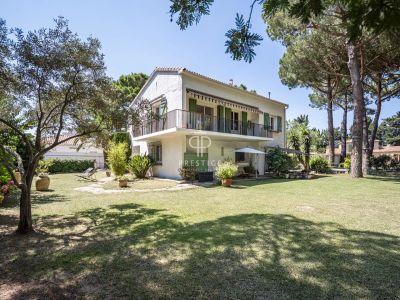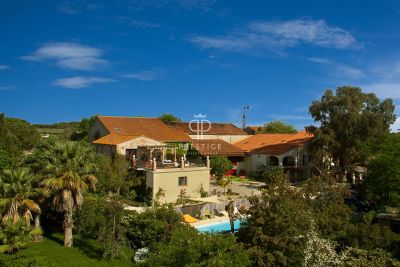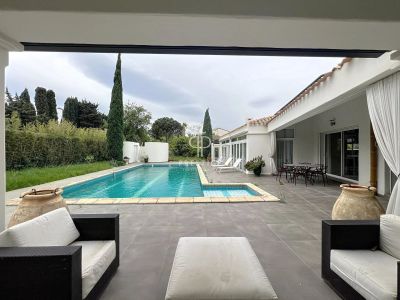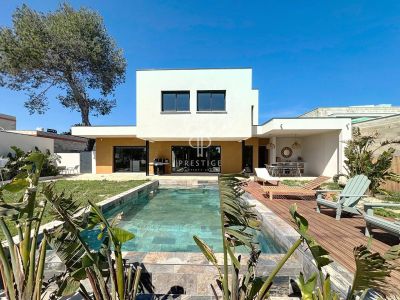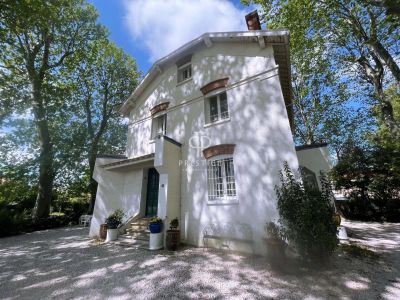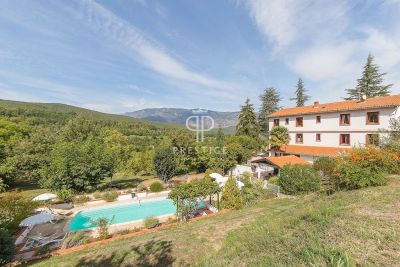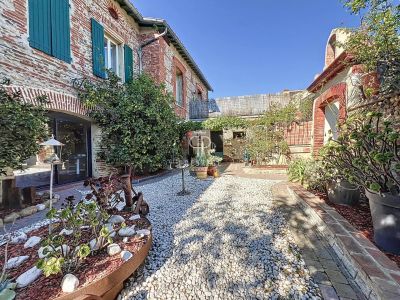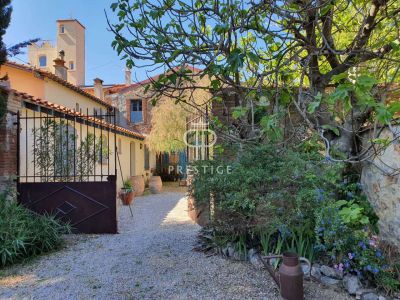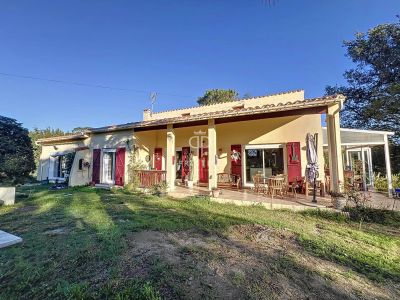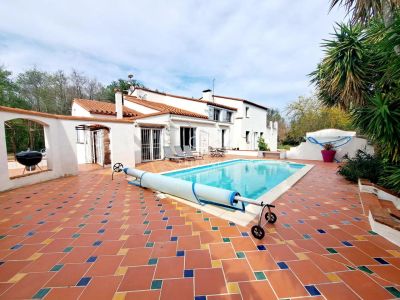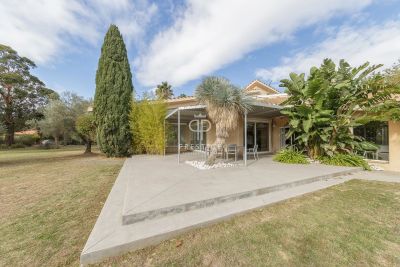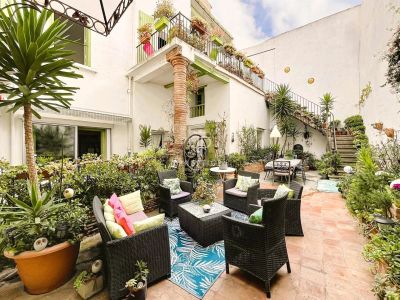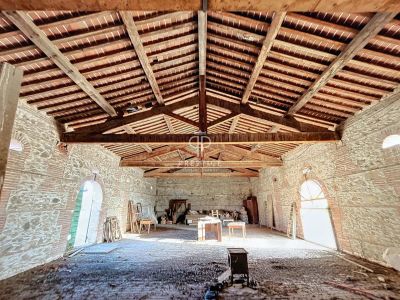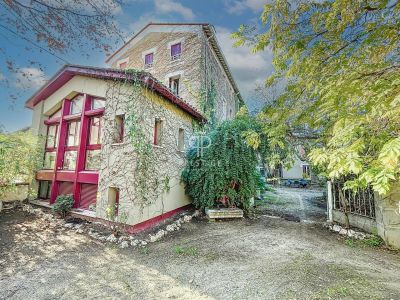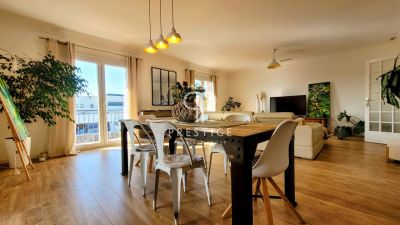Perpignan Property
Area Guide
Explore the bustling medieval winding streets of the city centre drinking in the herbs and spices of North Africa and Southern Spain and then enter the cool calm haven of the Cathedral St Jean the Baptist to marvel at the wealth of beauty and history and the glorious stained glass windows flooding the area with light; laze away a quiet sunny afternoon on your sun-soaked terrace with fabulous views of the city and then enjoy a relaxed lunch of Catalan-inspired tapas washed down with the local Roussillon wine; soar over the Pyrénées in a helicopter tour looking down over a patchwork of vineyards and rolling hills, dotted with fairy-tale chateaux and the legendary Cathar Castles.
Located in deepest southern France in Languedoc-Roussillon, the medieval city of Perpignan lies within 15 minutes of the Mediterranean Sea and miles of sandy beaches, one hour from the Spanish border and 90 minutes from the ski stations in the eastern Pyrenees. With its own airport and high speed train links to Spain and the rest of France, Perpignan property offers investors an excellent opportunity to own or rent property in this beautiful region of France.
Framed by the snow-capped peaks of the Pyrenees and surrounded by wonderful countryside, prolific wine-making villages, medieval fortresses and castles, Perpignan offers a fascinating blend of French and Spanish culture and architecture. The city was the capital of the old Catalan province of Roussillon, under the Counts of Roussillon but in 1172 it became the possession of Jaime (James) I, King of Aragon. When he died, his realm was divided between his sons and when his younger son, also called Jaime became the first of three hereditary kings of Majorca he made Perpignan his capital which it remained until 1344. Throughout the Middle Ages Perpignan was a stronghold town and in 1659 became French as the result of the Treaty of the Pyrenees. Originally defended by an immense system of ramparts boasting nine bastions plus an impressive citadel complex with six more, Perpignan's city walls were dismantled towards the end of the 19th century and today little or nothing remains of the city's defences except for the citadel.
Perpignan is a small city so it is easy to walk around. The medieval centre is particularly charming with the river Basse running through and beautifully planted gardens running along its edge. The highlight of Perpignan is the fabulous Palace of the Kings of Majorca (Palais des rois de Majorque). Constructed in 1276 by King Jaime II of Majorca, this palace and fortress with gardens overlooks the city of Perpignan and is one of the most remarkable examples of medieval civil and military architecture in southern France. Le Castillet is also worth a visit; now a national historic monument this ancient defensive structure was built in 1368 to repel invaders and serve as the city’s gate. It was expanded a century later by Louis XI before becoming a state prison in the 17th and 18th centuries. The 142 steep and narrow stone steps are worth the climb for the spectacular view of the city and surrounding countryside. And if you wonder why there is a statue of Salvador Dali outside the railway station, it is a tribute to the man who helped the tourist trade by claiming, after a visionary experience, that Perpignan Railway Station was the centre of the universe!
The choice and location of Perpignan property is wide both within the city centre and in the surrounding area ranging from elegant town houses, luxury villas to both renovated and modern apartments. Perpignan property prices remain high compared to the rest of South West France and are likely to remain so as demand for Perpignan property is also very healthy particularly as the excellent year round rental opportunities are proving to be increasingly attractive to international investors.
Within the city there is a good selection of Perpignan property on the market. An elegantly modern six bedroom town house with swimming pool and landscaped garden would cost around 580,000 EUR or a charming stone four bedroom town house surrounded by a walled garden filled with lemon and olive trees would be 420,000 EUR. For something a little different how about a former workshop entirely renovated into a spacious and modern four bedroom apartment with generous sun terrace and garden for around 450,000. There are a number of charmingly renovated town houses for sale within walking distance of the city centre between 300,000 EUR and 380,000 EUR and also a good number of apartment ranging from 230,000 EUR for a fully furnished four bedroom apartment with two terraces and private parking up to 300,000 EUR for a spacious two bedroom duplex apartment right in the historical city centre with fabulous views of the Palace of the Kings of Majorca.
Luxury villas tend to be located outside of the city either in the foothills of the Pyrenees or east towards the coast and prices start in the region of 500,000 going up to just under 2m EUR. For example, 630,000 will buy a stunning five bedroom modern villa with private swimming pool and garden or how about a traditional three bedroom villa surrounded by lemon and olive groves with superb views of the distant mountains for 785,000 EUR. And finally a beach front five bedroom villa near Canet-en-Roussillon would be 1m EUR.
Whether you decide to buy an elegant apartment within walking distance of the city centre or a luxury villa in the surrounding countryside, Perpignan property provides investors with the perfect opportunity to buy property in an area rich in history and culture and with excellent access to both the sea and the snow. The combination of a temperate climate, soaring mountains, diverse landscape, good wine, fabulous food and a relaxed approach to life makes Perpignan a perfect holiday and property investment destination.
Buying a Property in France
1. Signing the Agreement (Compris)
On finding a property you wish to purchase you will need to negotiate the terms, price and conditions of the sale with the owner.
The next step, once you are in agreement, is to sign the preliminary contract (Compromis de Vente). This is a legal document and after ten days will be binding on both parties. Rules change frequently in France and it is best to consult with your notary about when this period starts. Generally the compris will be signed in France with the Agent.
Variants can be included in the compris, for example an Acte (clause) can be added if the name or names to go on the title deed have not been finalised. If a mortgage will be required to purchase the property, the details for this, including the name of the mortgage company, must be on the compris.
2. Paying the Deposit
Generally the deposit will be 10% of the agreed purchase price. This will normally be paid to the notaire. There are exceptions to this, if the agent holds a carte professionelle, is bonded and fully registered then you may pay them, but do not hand over the deposit to anyone else. If for some reason the purchase does not go through, for example, if you write to the notaire and the agent that you do not wish to go continue with the purchase before the contract is binding (within seven days of signing the compris), then your deposit would be repaid. This would also apply if a condition had not been met, or the mayor or S.A.F.E.R. (a government agency that has the right of first purchase on most rural property that comes onto the market in France) could oblige the purchaser to give way. If you decide after the seven days 'cooling off' period that you do not wish to complete the purchase and pull out of the sale you would lose your deposit. If however the vendor pulls out of the sale then you will receive your deposit back plus the same amount from the vendor.
3. On Completion
Generally it will take around two or three months to complete the purchase.
During this time the balance of the purchase money must be paid into the account of the notaire, this must be done well ahead of the completion date. The notaire will prepare the documents, check that the deed of sale (Acte de Vente) is in order and have the legal title ready to be signed over. It is possible to have someone sign on your behalf if you give them power of attorney. An interpreter may be of use at this point if your French is not very good and many Notaires will suggest (or insist) that an interpreter is with you.
